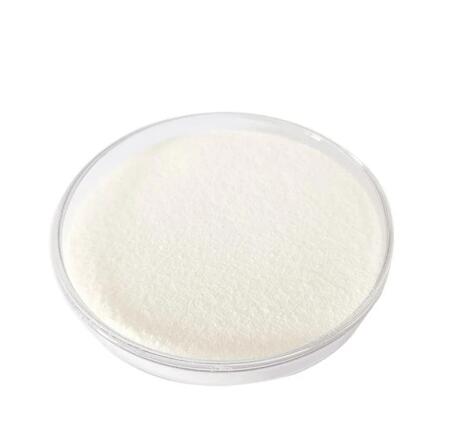L-cysteine, also known as cysteine, is a non-essential amino acid for the human body. Amino acids are the building blocks of protein.


L-CYSTEINE CAS#52-90-4
L-cysteine, also known as cysteine, is a non-essential amino acid for the human body. Amino acids are the building blocks of protein.
Chemical Properties: Colorless to white fine columnar crystals or white crystalline powder, with a slight special smell and taste (slightly acidic). Reducing, anti-oxidizing and preventing non-enzymatic browning. Physiological Functions and Actions: Cysteine helps detoxify the body. Together with selenium and vitamin E, it is the best free radical scavenger. Cysteine is also a precursor to glutathione, which binds and detoxifies harmful substances in the liver. It protects the liver and brain from damage caused by cigarettes, alcohol and drugs. Because cysteine is more soluble than cystine, it is more readily utilized by the body to treat a variety of diseases. Vitamin B6 is necessary for cysteine synthesis in the body. Cysteine cannot be synthesized when there is a chronic disease, so people with chronic diseases need a higher dose of cysteine, for example, 1g 3 times a day for 1 month. Cysteine supplementation is needed in cases of rheumatoid arthritis, vascular sclerosis and cancer. Cysteine also accelerates healing after surgery and burns, complexes with heavy metals, and aids in iron absorption. Both amino acids also accelerate fat utilization and muscle formation. Cysteine removes mucus from the respiratory tract, so it can treat bronchitis, emphysema and tuberculosis.
Uses: Bread improver; nutritional supplement; antioxidant; color protection agent. It has detoxification effect on acrylonitrile and aromatic acid; it has preventive effect on radiation damage; it has therapeutic effect on bronchitis and phlegm; and it has antidrunkenness effect on absorbing alcohol and converting it into acetaldehyde in the body. According to the provisions of GB2760-96, it is allowed to be used in spices.
Uses for the treatment of eczema, urticaria, freckles and other skin diseases, its series of products are widely used in medicine, food and cosmetics industrial use for biochemical research, medicine used as hepatitis, liver poisoning, radioactive drug poisoning, antimony poisoning and other antidotes. Uses mainly used in medicine, cosmetics, biochemical research.
Used in bread material to promote the formation of gluten and promote fermentation, mold, prevent aging. It is used in Chemicalbook juice to prevent vitamin C from oxidizing and prevent the juice from becoming brown. The product has a detoxification effect, can be used for acrylonitrile poisoning, aromatic acid poisoning. The product also has the effect of preventing radiation damage to the human body, but also the treatment of bronchitis, especially as a phlegm medicine (mostly used in the form of acetyl L-cysteine methyl esterate. In cosmetics, it is mainly used in cosmetic water, perm solution, sunscreen skin care creams, etc. It is widely used in medicine, food and cosmetics. UsesWidely used in medicine, food cosmetics and other industries.
Uses NMDA glutamate receptor stimulant uses Uses: Mainly used in medicine, cosmetics, biochemical research and so on. Used in bread material to promote the formation of gluten and promote fermentation, mold, prevent aging, etc... Used in the treatment of eczema, urticaria, freckles and other skin diseases.
Our professional sales team are waiting for your consultation.